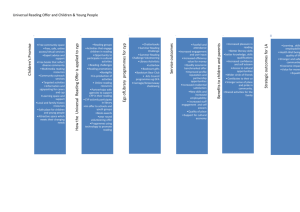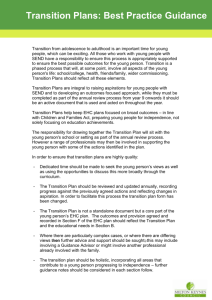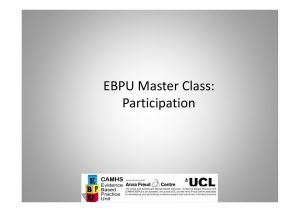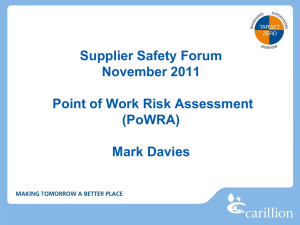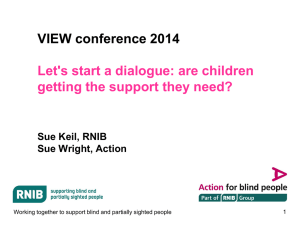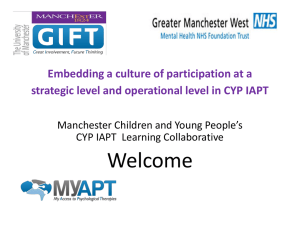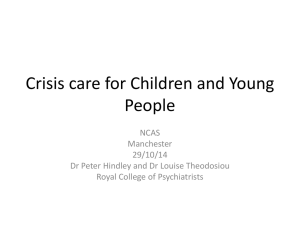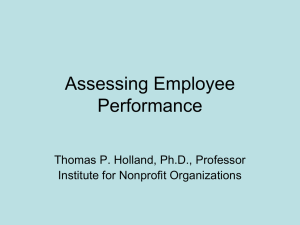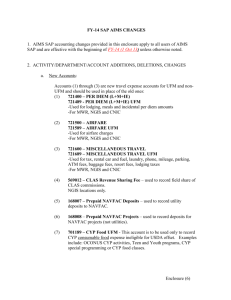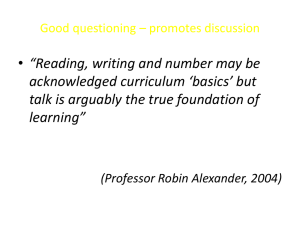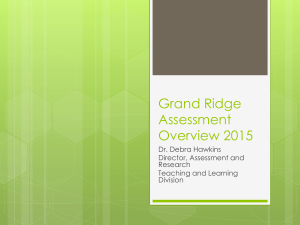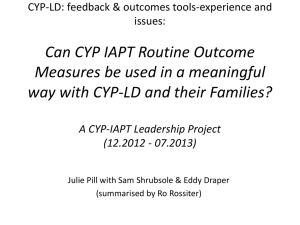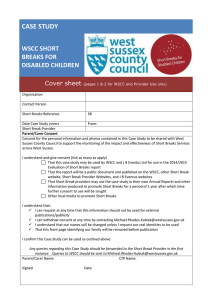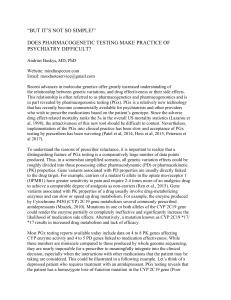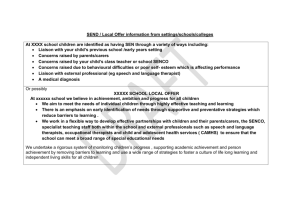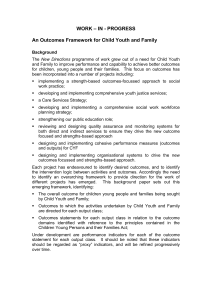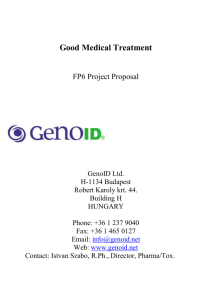346- Support CYP Health and Safety
advertisement
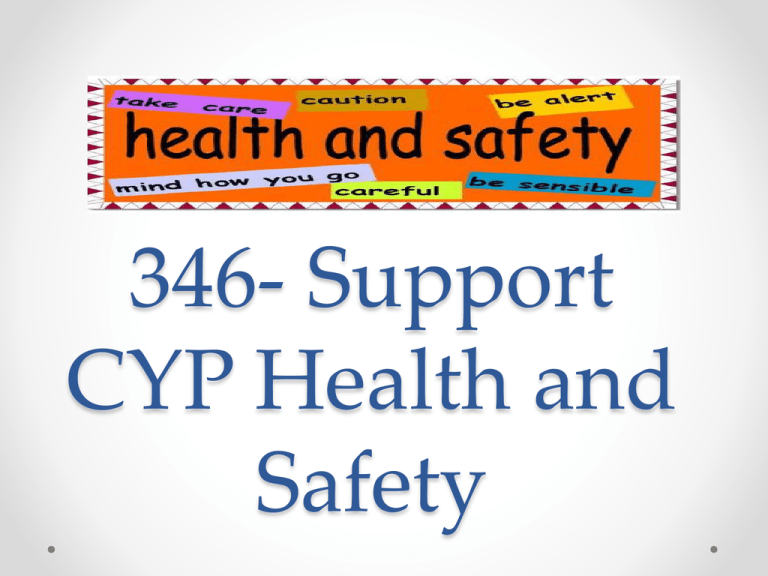
346- Support CYP Health and Safety Objectives • Understand how to plan and provide environments and services that children and young persons safety • Be able to recognise and manage risks to health, safety and security in a work setting or off site visits • Understand how to support children and young people to assess and manage risk for themselves • Understand appropriate responses to accidents, incidents emergencies and illness in work settings and off site visits • Describe what is health and safety o o What duty of care have you, around Health and Safety? Name Health and Safety Acts • • • • • • • • • • Health and safety at work act Motor vehicle regs 2006 ( wearing safety belts!) COSHH RIDDOR Children Act 2006 ( This underpins framework assessment of settings) National minimum standards Food hygiene legislation 2006 Smoking ban 2007 Manual handling regulations Medication act Task Sheet 1- written individual task • Explain how the legislation on the last sheet are implemented in your work setting Monitoring Health and Safety • Accident/incident forms completed • Risk assessments forms • Training which includes, Health and safety, moving and handling, medication, infection control, medication etc. • Supervisions/appraisals • Policies and Procedures • Equipment checks- I.e. PAT testing, Hoist/lifts annual testing , MOT vehicle checks • Reporting Hazards and risks forms etc Informal and Formal Risk Assessments • What is the difference ? • Why are Risk Assessments used? • Who does these two types of • Risk Assessments? How are These Risk assessments monitored? Identify Potential Hazards in your setting. What factors must you take into account when planning healthy and safe indoor and out door environments? Factors • • • • • • • • Age and stage of development of your child. Capability of your Child Sensory or Disability need of your Young person The ability or personal circumstance of the staff member looking after the CYP Duty of Care of CYP The required outcome of the activity in meeting the needs of the CYP. Safe, secure environment Time Complete a Risk assessment on a young person Childs Name Task Identified Risk To take young person swimming as part of identified learning plan Risk of drowning due to inability to swim , poor behaviour, inability to understand instruction. Planned Solution assessment on a young person in your setting. Task Identified Risk Planned Solution- also describe how this reduces the risk. Discussion• Explain why Children should be allowed to take risks? • Discuss how this can be achieved to manage risks for themselves • Signs and reminders on equipment. • Notices on cupboards to remind children about storage. • Discussing safety issues with children as part of day to day practice. • Encourage washing hands after using the toilet or after handling animals or plants. Before handling food. • Talking through the reasons for fire practice and other safety requirements. • reminders on outside doors to close them and fire doors to keep clear. • Encourage supervised risk taking- use Knives for cooking etc. • Road Safety – crossing roads. Explain giving examples of dilemmas between the rights and choices of CYP and health and safety requirements • A young person wants to do a climbing activity but has epilepsy and isn’t always controlled. • A young person has been placed in your care due to previously being addicted to drugs. He wants to go to the youth club in the village on his own. • A young person who has difficulty holding objects wants to use a craft knife. Accidents, incidents, emergencies and illnesses • Describe what is the difference between Accidents, incidents, emergencies and illnesses .Explain with examples • Describe your policies and procedures for each of the above. • Exercise which policy procedure would you follow for the following • A staff member falls over and scrapes his knee • A YP has tooth ache • A Visitor is found wandering around un-escorted • A YP who is not a known epileptic has a seizure.
